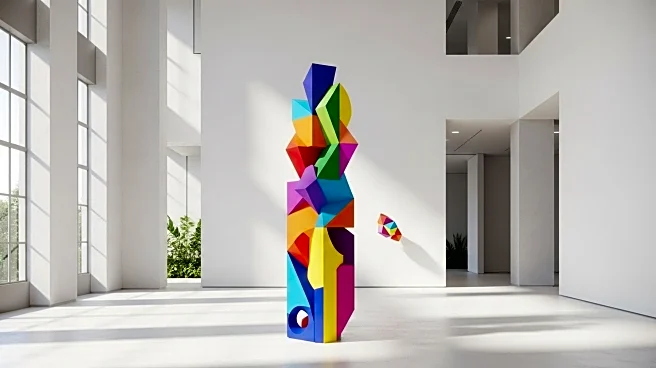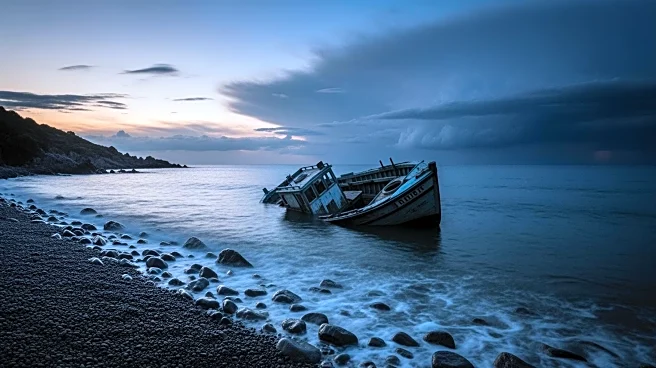What is the story about?
What's Happening?
The 36th edition of the São Paulo Biennale, titled 'Not All Travellers Walk Roads,' is currently underway, featuring a diverse array of art installations that explore alternative forms of consciousness. Curated by Cameroonian Bonaventure Soh Bejeng Ndikung, the exhibition includes works from 120 artists, emphasizing nature and non-western belief systems. The biennale, held in São Paulo's Ibirapuera Park, features a variety of sensory experiences, including sound installations, botanical displays, and sculptures. Notable works include a garden by US-Nigerian artist Precious Okoyomon and sound systems by Gê Viana. The exhibition also highlights the use of specific materials like charcoal and textiles, with contributions from artists such as Emeka Ogboh and Theresah Ankomah.
Why It's Important?
The São Paulo Biennale is significant as it provides a platform for artists to challenge conventional perceptions of consciousness and spirituality. By focusing on non-western belief systems and nature, the exhibition encourages viewers to consider alternative perspectives on human experience. This approach not only broadens the scope of contemporary art but also fosters cultural exchange and understanding. The biennale's emphasis on sensory experiences and material diversity reflects a growing trend in the art world towards immersive and interactive installations, which can engage audiences in new and meaningful ways.
What's Next?
As the biennale continues, it is expected to attract a wide audience, including art enthusiasts, critics, and cultural scholars. The exhibition may influence future art shows by setting a precedent for incorporating diverse cultural narratives and sensory elements. Additionally, the biennale could inspire artists to explore similar themes in their work, potentially leading to a broader acceptance and integration of non-western perspectives in the global art scene. The event may also prompt discussions on the role of art in addressing complex social and cultural issues.
Beyond the Headlines
The São Paulo Biennale's focus on alternative consciousness and spirituality raises important questions about the role of art in society. By challenging traditional narratives and encouraging viewers to engage with different belief systems, the exhibition highlights the potential of art to foster empathy and understanding across cultures. This approach also underscores the importance of preserving and celebrating diverse cultural heritages in an increasingly globalized world. Furthermore, the biennale's emphasis on sensory experiences suggests a shift towards more inclusive and accessible forms of art, which can reach a wider audience and promote social cohesion.















